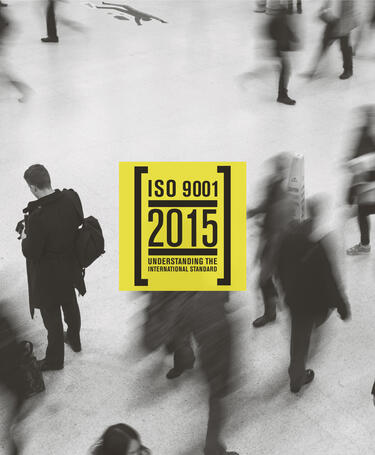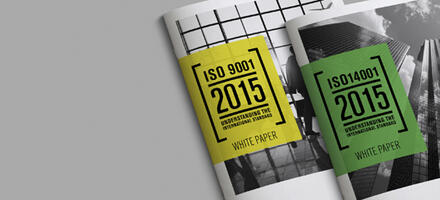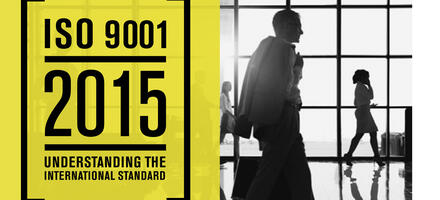
It’s not too late to prepare for ISO 9001:2015
Progress indicator
Resh Plaha, IRCA Lead Auditor, shares her experience on conducting CQI workshops to help members prepare for the revised ISO 9001 standard.
ISO 9001:2008 will expire on 15 September 2018. In the lead-up to this deadline, organisations have been preparing to transition to the new version, ISO 9001:2015. Over the last four months, I have delivered three CQI ‘Surgery with Resh, ISO 9001:2015 Transition’ events and it has become markedly noticeable that there is still a fair proportion of organisations beavering away to prepare for their pending external transition assessments.
If your organisation hasn’t started yet, let me reassure you that there’s still time if you start in earnest now. If your organisation is currently certificated to ISO 9001:2008, you’re already working towards elements of the new standard. You certainly would not be running a successful business today if you weren’t.
The focus of the two workshops I conducted in March 2018, at the CQI London Head Office and CQI Leicester and Coventry branches, was on Section 4 of ISO 9001:2015 ‘Context of the Organisation’. Based on feedback from CQI members and various organisations I’ve worked with, this section is proving to be the most challenging area of the new standard. Many have identified it as their ‘Achilles heel’, and have felt that this particular section needed to be clarified in plain English.
Delegates who attended the workshops represented different industry backgrounds and raised interesting questions and thought-provoking ideas. Some of the topics discussed interactively during the workshops include: interested parties and why they were relevant to the delegates’ organisations; use of various business tools and techniques to gather data and intelligence such as SWOT (Strengths, Weaknesses, Opportunities, and Threats) and PESTLE (Political, Economical, Social, Technological and Environmental); distilling the significance of internal and external issues and giving examples that related to their organisations (eg, Brexit, international trade, digital and smart technology); application of risk-based thinking and using tools such as FMEA (Failure Mode Effects Analysis), DMAIC (Define, Measure, Analyse, Improve and Control) and the Ishikawa diagram for root-cause analysis; importance of the enhanced scope of the quality management system; mandatory adoption of process approach. We also had a lively discussion of delegates’ experiences of working with assessors performing the transition assessments.
In conclusion, it appears that information on meeting the requirements of Section 4 was available in delegates’ organisations, but not always in the conventional scope of a quality management system. So I would encourage delegates to integrate the business activities into their quality management system. It makes life so much easier!
Resh Plaha is Vice-Chair of the CQI Leicester and Coventry branch, IRCA Lead Auditor, Consultant, Lecturer and Trainer, and Managing Director of Crystal Quality UK Ltd
Quality World

Get the latest news, interviews and features on quality in our industry leading magazine.
Transition training

Update your knowledge and skills on the revised ISO 9001 and 14001 standards by 1 September 2018. Search our practitioner courses for transition training.


